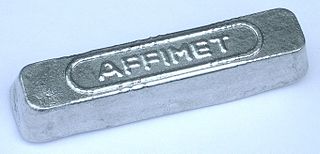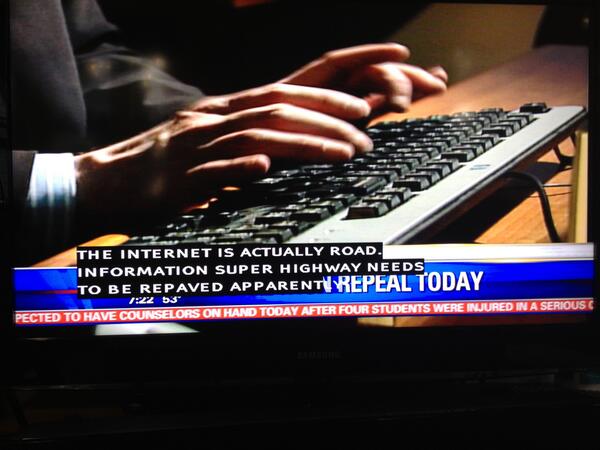“There’s people making babies to my music. That’s nice.”
—Barry White, American musician, born September 12, 1944
More Things To Worry About That Are Completely Out of Your Control
 As a general rule, we shouldn’t worry about what’s out of our control. We certainly should not worry about what’s none of our damned business, with “business” generously construed.
As a general rule, we shouldn’t worry about what’s out of our control. We certainly should not worry about what’s none of our damned business, with “business” generously construed.
But what do we do with the stuff that is our business, again generously construed (like generation change and the imminent takeover of the oceans by giant, poisonous jellyfish, is way out of our control?
Dunno. Your move. Why don’t you come to DELA, have lunch with some interesting people, and stop worrying?
Events Today
 Easthampton—12:00–2:00PM Don’t Eat Lunch Alone
Easthampton—12:00–2:00PM Don’t Eat Lunch Alone
Holyoke—4:30PM Expand Your Network Western Mass
Northampton—5:00–7:00PM Click Workspace Entrepreneurship Fall Bash
Easthampton—5:00–7:00PM Greater Easthampton Chamber Networking by Night
Northampton—5:00–8:00PM Northampton Area Young Professionals September Networking Social
Springfield—6:00–9:00PM SCORE Business Planning and Cash Flow
Reading
Dem Bones
 “…Social systems around the world have become highly interconnected. Good innovations can now spread around the world in the blink of an eye, on the scale of history. Island biogeography suggests that such rapid inflows and outflows among the many social systems have moved and will move us closer to monoculture; at this limit this makes us a single global point of failure….”
“…Social systems around the world have become highly interconnected. Good innovations can now spread around the world in the blink of an eye, on the scale of history. Island biogeography suggests that such rapid inflows and outflows among the many social systems have moved and will move us closer to monoculture; at this limit this makes us a single global point of failure….”
Catastrophic Social Change
These Kids Today
 72 million Millenials pose challenges to the culture of workplaces and other social and economic institutions. They’re widely considered to be lazy, entitled, narcissistic, and restless by business superiors from the two previous generations (Baby Boom and Gen X). Sounds familiar, right? “Greatest Generation” bosses and parents had very similar reactions to the Boomers (I know: I was there), and Boomers looked down on the hapless Gen-Xers (ditto). The literary evidence strongly supports the hypothesis that the poor younger generation has never done anything right in the eyes of its predecessors since time immemorial.
72 million Millenials pose challenges to the culture of workplaces and other social and economic institutions. They’re widely considered to be lazy, entitled, narcissistic, and restless by business superiors from the two previous generations (Baby Boom and Gen X). Sounds familiar, right? “Greatest Generation” bosses and parents had very similar reactions to the Boomers (I know: I was there), and Boomers looked down on the hapless Gen-Xers (ditto). The literary evidence strongly supports the hypothesis that the poor younger generation has never done anything right in the eyes of its predecessors since time immemorial.
Nevertheless, at 72 million strong, this is the largest cohort to join the workforce and society at large since the Baby Boom. So get used to it. The world will change in their image, just as the Baby Boom upended everything in the 1960s and 1970s.
“…Boomers and Gen-Xers need to be ready, Schewe said. ‘The point is, as an older cohort with a different set of values, you can’t just say, “they’ve got to bend to us; we’re not going to bend to them.” There are just too many of them, and their values are too pervasive and too deeply embedded to be ignored.’
Generation Next
Never Mind the Millenials. Have You Heard About the Jellyfish?
 “….To understand why jellyfish are taking over, we need to understand where they live and how they breed, feed, and die. Jellyfish are almost ubiquitous in the oceans. As survivors of an earlier, less hospitable world, they can flourish where few other species can venture. Their low metabolic rate, and thus low oxygen requirement, allows them to thrive in waters that would suffocate other marine creatures. Some jellyfish can even absorb oxygen into their bells, allowing them to “dive” into oxygen-less waters like a diver with scuba gear and forage there for up to two hours…‘We are creating a world more like the late Precambrian than the late 1800s—a world where jellyfish ruled the seas and organisms with shells didn’t exist. We are creating a world where we humans may soon be unable to survive, or want to.’”
“….To understand why jellyfish are taking over, we need to understand where they live and how they breed, feed, and die. Jellyfish are almost ubiquitous in the oceans. As survivors of an earlier, less hospitable world, they can flourish where few other species can venture. Their low metabolic rate, and thus low oxygen requirement, allows them to thrive in waters that would suffocate other marine creatures. Some jellyfish can even absorb oxygen into their bells, allowing them to “dive” into oxygen-less waters like a diver with scuba gear and forage there for up to two hours…‘We are creating a world more like the late Precambrian than the late 1800s—a world where jellyfish ruled the seas and organisms with shells didn’t exist. We are creating a world where we humans may soon be unable to survive, or want to.’”
They’re Taking Over
The Last Word

“The older one gets the more one comes to resemble oneself.”
—Maurice Chevalier, French actor, born September 12, 1888



 I spent a couple of hours working in the Haydenville Library in Florence yesterday. It’s a charming little library. The people who lived in this area obviously valued literacy highly enough at one time to build branch libraries all over the place. Like our own Shelburne Public Library, for instance; not the rather grand Arms Library in Shelburne Falls, but the sweet little stone building erected in the 1890s in Shelburne Center, in a place that has never had a store as far as I know. It has two rooms and a couple of thousand books. It’s open from 3:00 to 7:00PM on Tuesdays and Thursdays, and 10:00–12:00 on Saturday morning. That’s where I go to pick up and return the books that I order via the C/W MARS online library system, which gives me access to the holdings of every public library in the Commonwealth, and some academic ones as well.
I spent a couple of hours working in the Haydenville Library in Florence yesterday. It’s a charming little library. The people who lived in this area obviously valued literacy highly enough at one time to build branch libraries all over the place. Like our own Shelburne Public Library, for instance; not the rather grand Arms Library in Shelburne Falls, but the sweet little stone building erected in the 1890s in Shelburne Center, in a place that has never had a store as far as I know. It has two rooms and a couple of thousand books. It’s open from 3:00 to 7:00PM on Tuesdays and Thursdays, and 10:00–12:00 on Saturday morning. That’s where I go to pick up and return the books that I order via the C/W MARS online library system, which gives me access to the holdings of every public library in the Commonwealth, and some academic ones as well. Reading the superb second volume of Vaclav Smil’s masterful account of the invention and development of the key technologies of the 20th century.
Reading the superb second volume of Vaclav Smil’s masterful account of the invention and development of the key technologies of the 20th century.  Very interesting post from a blogger who works as an investor in Hong Kong. Premise is that the quantity of steel, aluminum, and so on he consumes has declined radically in his lifetime and that the trend continues. What does this mean for extraction industries, utilities, and especially for emerging markets, which are all about making “stuff.” Add population decline in the next few decades, and the rise of nanotechnology with its promise of cheap, scalable hardware manufacture, and the future looks decidedly bleak for credit investors. There will be less need for bank lending and more opportunities for venture capital and the funding of research. Being reincarnated as the Bond Market might not as great an idea as it was 1994 (“I used to think if there was reincarnation, I wanted to come back as the President or the Pope or a .400 baseball hitter. But now I want to come back as the bond market. You can intimidate everyone.”—James Carville, Clinton campaign strategist)
Very interesting post from a blogger who works as an investor in Hong Kong. Premise is that the quantity of steel, aluminum, and so on he consumes has declined radically in his lifetime and that the trend continues. What does this mean for extraction industries, utilities, and especially for emerging markets, which are all about making “stuff.” Add population decline in the next few decades, and the rise of nanotechnology with its promise of cheap, scalable hardware manufacture, and the future looks decidedly bleak for credit investors. There will be less need for bank lending and more opportunities for venture capital and the funding of research. Being reincarnated as the Bond Market might not as great an idea as it was 1994 (“I used to think if there was reincarnation, I wanted to come back as the President or the Pope or a .400 baseball hitter. But now I want to come back as the bond market. You can intimidate everyone.”—James Carville, Clinton campaign strategist) “…If I did an inventory of how much steel, aluminium and the like I consume it has likely gone down a great deal and is comically less than what my parents consumed. Sure I spend a fair bit on services – publication subscriptions, Evernote, gym membership, Fitbit, going out to eat, etc – but the central fact of my existence is that the material content has gone down markedly all the while my quality of life has improved markedly. It has also become increasingly similar to that of everyone else as Rick Bookstaber has observed.
“…If I did an inventory of how much steel, aluminium and the like I consume it has likely gone down a great deal and is comically less than what my parents consumed. Sure I spend a fair bit on services – publication subscriptions, Evernote, gym membership, Fitbit, going out to eat, etc – but the central fact of my existence is that the material content has gone down markedly all the while my quality of life has improved markedly. It has also become increasingly similar to that of everyone else as Rick Bookstaber has observed. “Life would be so wonderful if we only knew what to do with it.”
“Life would be so wonderful if we only knew what to do with it.” Occurs to me that in a world where we are always connected that the only good thing about our current, execrable air travel system, that it gets you there fast, will be less important in the future. The top speed of the alumimum airships being developed by the Aeros Corporation is about 140mph, which would get you from New York to Los Angeles in about 20 hours. If you could travel in comfort and be connected the whole time, why wouldn’t you want to? Compare to the cramped, inhuman conditions endured by jet passengers. Oh, wait, things are better in First Class, aren’t they?
Occurs to me that in a world where we are always connected that the only good thing about our current, execrable air travel system, that it gets you there fast, will be less important in the future. The top speed of the alumimum airships being developed by the Aeros Corporation is about 140mph, which would get you from New York to Los Angeles in about 20 hours. If you could travel in comfort and be connected the whole time, why wouldn’t you want to? Compare to the cramped, inhuman conditions endured by jet passengers. Oh, wait, things are better in First Class, aren’t they? The Last Word
The Last Word As a general rule, we shouldn’t worry about what’s out of our control. We certainly should not worry about what’s none of our damned business, with “business” generously construed.
As a general rule, we shouldn’t worry about what’s out of our control. We certainly should not worry about what’s none of our damned business, with “business” generously construed.
 “…Social systems around the world have become highly interconnected. Good innovations can now spread around the world in the blink of an eye, on the scale of history. Island biogeography suggests that such rapid inflows and outflows among the many social systems have moved and will move us closer to monoculture; at this limit this makes us a single global point of failure….”
“…Social systems around the world have become highly interconnected. Good innovations can now spread around the world in the blink of an eye, on the scale of history. Island biogeography suggests that such rapid inflows and outflows among the many social systems have moved and will move us closer to monoculture; at this limit this makes us a single global point of failure….” 72 million Millenials pose challenges to the culture of workplaces and other social and economic institutions. They’re widely considered to be lazy, entitled, narcissistic, and restless by business superiors from the two previous generations (Baby Boom and Gen X). Sounds familiar, right? “Greatest Generation” bosses and parents had very similar reactions to the Boomers (I know: I was there), and Boomers looked down on the hapless Gen-Xers (ditto). The literary evidence strongly supports the hypothesis that the poor younger generation has never done anything right in the eyes of its predecessors since time immemorial.
72 million Millenials pose challenges to the culture of workplaces and other social and economic institutions. They’re widely considered to be lazy, entitled, narcissistic, and restless by business superiors from the two previous generations (Baby Boom and Gen X). Sounds familiar, right? “Greatest Generation” bosses and parents had very similar reactions to the Boomers (I know: I was there), and Boomers looked down on the hapless Gen-Xers (ditto). The literary evidence strongly supports the hypothesis that the poor younger generation has never done anything right in the eyes of its predecessors since time immemorial. “….To understand why jellyfish are taking over, we need to understand where they live and how they breed, feed, and die. Jellyfish are almost ubiquitous in the oceans. As survivors of an earlier, less hospitable world, they can flourish where few other species can venture. Their low metabolic rate, and thus low oxygen requirement, allows them to thrive in waters that would suffocate other marine creatures. Some jellyfish can even absorb oxygen into their bells, allowing them to “dive” into oxygen-less waters like a diver with scuba gear and forage there for up to two hours…‘We are creating a world more like the late Precambrian than the late 1800s—a world where jellyfish ruled the seas and organisms with shells didn’t exist. We are creating a world where we humans may soon be unable to survive, or want to.’”
“….To understand why jellyfish are taking over, we need to understand where they live and how they breed, feed, and die. Jellyfish are almost ubiquitous in the oceans. As survivors of an earlier, less hospitable world, they can flourish where few other species can venture. Their low metabolic rate, and thus low oxygen requirement, allows them to thrive in waters that would suffocate other marine creatures. Some jellyfish can even absorb oxygen into their bells, allowing them to “dive” into oxygen-less waters like a diver with scuba gear and forage there for up to two hours…‘We are creating a world more like the late Precambrian than the late 1800s—a world where jellyfish ruled the seas and organisms with shells didn’t exist. We are creating a world where we humans may soon be unable to survive, or want to.’”